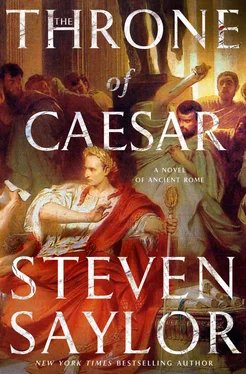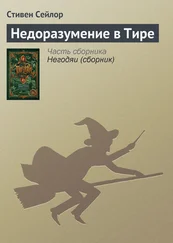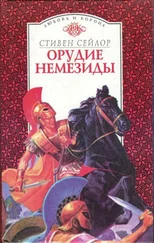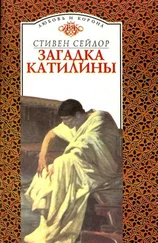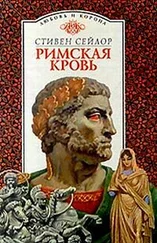Стивен Сейлор - The Throne of Caesar
Здесь есть возможность читать онлайн «Стивен Сейлор - The Throne of Caesar» весь текст электронной книги совершенно бесплатно (целиком полную версию без сокращений). В некоторых случаях можно слушать аудио, скачать через торрент в формате fb2 и присутствует краткое содержание. Год выпуска: 2018, Издательство: St. Martin's Press, Жанр: Исторический детектив, на английском языке. Описание произведения, (предисловие) а так же отзывы посетителей доступны на портале библиотеки ЛибКат.
- Название:The Throne of Caesar
- Автор:
- Издательство:St. Martin's Press
- Жанр:
- Год:2018
- ISBN:нет данных
- Рейтинг книги:5 / 5. Голосов: 1
-
Избранное:Добавить в избранное
- Отзывы:
-
Ваша оценка:
- 100
- 1
- 2
- 3
- 4
- 5
The Throne of Caesar: краткое содержание, описание и аннотация
Предлагаем к чтению аннотацию, описание, краткое содержание или предисловие (зависит от того, что написал сам автор книги «The Throne of Caesar»). Если вы не нашли необходимую информацию о книге — напишите в комментариях, мы постараемся отыскать её.
The Throne of Caesar — читать онлайн бесплатно полную книгу (весь текст) целиком
Ниже представлен текст книги, разбитый по страницам. Система сохранения места последней прочитанной страницы, позволяет с удобством читать онлайн бесплатно книгу «The Throne of Caesar», без необходимости каждый раз заново искать на чём Вы остановились. Поставьте закладку, и сможете в любой момент перейти на страницу, на которой закончили чтение.
Интервал:
Закладка:
I hurried up the steps, my heart pounding in my chest.
Ahead of me, I heard Caesar laugh as he entered the Senate House.
XXXIV
Even as Caesar was passing through the wide doorway, I stepped past Cinna and attempted to draw next to Caesar, but Decimus quickly stepped between us, as if intentionally to keep me from him. Perhaps it was customary for one of Caesar’s intimates to assume the task of delivering him to the Senate House, escorting the Dictator every step of the way to his golden chair; otherwise Caesar would never get there, dogged by petitioners and well-wishers at every turn. Antony, as consul, was probably supposed to be doing Decimus’s job, but Antony had been distracted and taken aside.
I felt Cinna’s hand on my arm.
“Gordianus, calm yourself! Take a deep breath. I fear those steps have winded you.”
“I’m all right.”
“Are you? Your face is quite red. I’ve never seen you in such a state. Have you let Artemidorus distress you? The Greeks, bless them, do have a way of injecting drama into every situation. The man’s a mere tutor, you know. Not even a poet. Making a fuss over nothing, I’m sure.”
Side by side we entered the vestibule of the Senate House of Pompey. The walls and the floor were covered with a sort of marble I had never seen before, yellow veined with black. The space was dominated by a very large painting, so famous that even I had heard of it, though I had never actually seen it. It was called The Warrior with a Shield Ascending, by Polygnotus of Thasos, brought to Rome by Pompey after one of his successful campaigns. The painting was more than three hundred years old but looked as if the dazzling paint was still fresh on the wood. Against a black void, the warrior, naked except for a Greek helmet, appeared to be suspended in midair. His arms and legs were outstretched and his head tilted up, as if he gazed heavenward. In one hand he held a sword. On his other arm, thrust toward the viewer so that it dominated all else, was a shield covered with intricate designs and fabulous images of gods and monsters, as finely detailed as the famous shield of Achilles in the Iliad. For a moment I was distracted from all other concerns, my attention riveted on a famous work of art few men in the world were privileged to see, due to its location. Caesar, too, paused to look at it, though he must have seen it many times before.
He looked back at me. “What do you think, Gordianus? Is the warrior ascending, like Hercules, to join the gods on Olympus? Or is he plummeting from some great height, heading straight for Hades as he gazes toward the heavens?”
I stared at the painting. “It hadn’t occurred to me that the warrior must be dead.”
Caesar laughed. “Still, he’s either going up … or down. How Pompey loved this painting. How generous he was to share it with his fellow senators.”
He moved on, with Decimus beside him. Cinna and I followed them through another doorway and into the main chamber. I sucked in a breath, struck by the loftiness of the ceiling. From windows high in the walls a diffuse golden light illuminated a milling sea of white and red. The number required for a quorum, if I remembered correctly, was two hundred, and I judged there must be at least that many senators already in the room, with more arriving every moment. The tall chamber resounded with the echoes of many voices. The hubbub grew louder as the Dictator’s arrival was noticed .
Caesar steadily made his way through the crowd. Decimus fended off any interruptions from the right, while Caesar himself declined any demand for his attention from the left, holding up the parchment from Artemidorus as if to show that he had already received enough petitions for the day.
Among the senators, I saw Cicero. He stepped back and bowed his head slightly as Caesar passed, and in return received a slight nod from the Dictator. As I walked past him, Cicero gave me a baleful stare.
“I saw that!” said Caesar, looking over his shoulder. Cicero looked chagrined. Turning back for a moment, Caesar said to me in a low voice, “It was worth making you a senator, I think, just to see that look on Cicero’s face! Why, Gordianus, I’ve put a smile on your face. A good omen, at last! If I can put you at ease, Finder, then surely I can charm even the most recalcitrant senators today.”
Caesar headed toward a raised platform at the far end of the chamber. On this dais, set atop a high pedestal, stood a statue of Pompey, the great commander’s arm raised as if to greet his fellow senators. The figure was extremely lifelike, one of those statues that seem almost to breathe and to look back at you. Its face bore an extraordinary likeness to its model. The sculptor had captured exactly the plump roundness of Pompey’s face and the bland smile he bestowed on friends and enemies alike—the smile of a man who might be about to kiss you … or kill you. The way the statue loomed above us on its pedestal, and its uncanny resemblance to a man I had seen beheaded, made it seem strangely monstrous. I shivered, at once fascinated and repelled by the image of Pompey.
Many had thought that Caesar would remove this image of his vanquished rival and rename the chamber for himself. Instead, he had allowed both the name and the statue to remain. Meto called this a sign of Caesar’s magnanimity in victory. It might also be that Caesar felt some lingering obligation to Pompey, and even affection for him, especially now that he was dead. As we traversed the long room and drew nearer to the looming statue, I saw Caesar gaze up and heard him mutter under his breath, “We meet again, old friend. But while you stand, I shall sit. ”
Then Caesar abruptly stopped and turned his head, looking from one side of the dais to the other. “My chair,” he said in a quiet voice, and then louder, “My chair! Where is my chair? Why is my chair not ready for me?”
“I think,” said Decimus, “that someone must have ordered it to be removed and put away, thinking you had decided not to come. It’s far too valuable to be left out unattended, as you must agree. I’m sure it’s being fetched even as we speak—yes, look there, two slaves are bringing it in.”
The gilded chair was carried onto the dais, where the diffused sunlight from the high windows caused it to glimmer like a throne made of golden fire.
Caesar stepped onto the dais. Decimus followed him. I hung back, not sure if it was proper for me to stand on the raised platform. Cinna stayed beside me, but a number of senators felt no compunction about stepping onto the dais. Among them I saw Brutus and Cassius, and also portly Casca, the man who had mistakenly given me directions to the house of Cinna the praetor. That other Cinna, too, I had seen among the senators in the chamber when we entered, scowling as on the day I had met him and wearing his praetorian toga with a red border, but he was no longer in sight.
A train of slaves entered the room carrying leather barrels for storing scrolls. This seemed to be the usual procedure; no one took notice of them. These barrels were set along the far edges of the dais, and some of the senators moved toward them, as if eager to lay hands on some piece of proposed legislation.
“Cinna,” I said, “there’s something odd about those containers, don’t you think?”
“Is there?”
“They look … too heavy. The way the slaves carried them … they seem to contain something other than scrolls.”
“Slaves can make any burden appear heavy, even a pillow stuffed with feathers,” said Cinna with a smile.
I shook my head, not quite satisfied with this explanation. Then I saw two slaves set a small tripod table beside the golden chair. Perhaps it was Caesar’s habit to take notes during the proceedings, for on the table I saw a wax tablet and a rather heavy-looking metal stylus with a sharp point for scraping letters in the wax. The stylus had the unmistakable gleam of silver—a worthy instrument for a dictator’s hand. Before he sat, Caesar picked up the stylus. Perhaps he had thought of something he wanted to write down, for he seemed about to put down the piece of parchment in his left hand, which would have allowed him to pick up the tablet. Then something distracted him, and he kept his grip on Artemidorus’s message as well as the stylus as he turned about and gazed over the noisy, crowded room. One of the slaves who had delivered the chair moved it so that Caesar could sit without bothering to look behind him. The slave stepped back, out of the way. Someone in a toga took the slave’s place and stood directly behind Caesar, as if stationed there.
Читать дальшеИнтервал:
Закладка:
Похожие книги на «The Throne of Caesar»
Представляем Вашему вниманию похожие книги на «The Throne of Caesar» списком для выбора. Мы отобрали схожую по названию и смыслу литературу в надежде предоставить читателям больше вариантов отыскать новые, интересные, ещё непрочитанные произведения.
Обсуждение, отзывы о книге «The Throne of Caesar» и просто собственные мнения читателей. Оставьте ваши комментарии, напишите, что Вы думаете о произведении, его смысле или главных героях. Укажите что конкретно понравилось, а что нет, и почему Вы так считаете.
